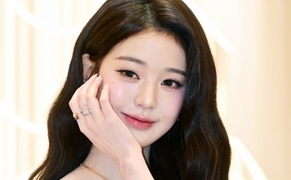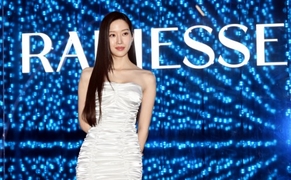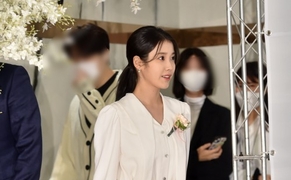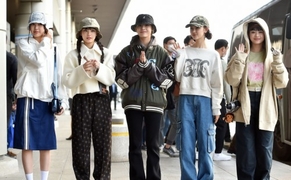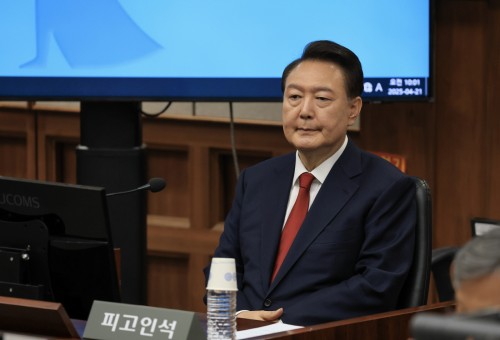 |
| Former President Yoon Suk-yeol appears at the Seoul Central District Court in Seocho District, Seoul, for the second hearing in his criminal trial on sedition charges on April 21. / Photo by joint press corps |
For the first time, the public saw former President Yoon Suk-yeol in the defendant’s seat on April 21, as images of his appearance at the Seoul Central District Court were made public during his second criminal trial over the December 3 martial law crisis.
Unlike his 93-minute opening statement during the first trial, Yoon remained largely silent this time, though he reiterated his view that martial law is a constitutional power of the president and a legitimate tool.
Yoon likened martial law to a knife, emphasizing it as a neutral instrument. “Martial law in itself is value-neutral. It’s a legal means,” he said. “A knife can be used to cook, chop wood for fire, or perform surgery on a patient—but it can also be used for threats, assaults, and murder.” He added, “To frame this trial as sedition based simply on the use of martial law is like saying using a knife automatically means murder.”
He argued that the true context of the martial law declaration should be the focus: “If the intent was a loyalist coup to prolong a dictatorship, then that must be proven and judged as such. Martial law was merely the instrument.”
The hearing included heated cross-examinations of military commanders who had entered the National Assembly on the day martial law was declared. Col. Cho Sung-hyun, commander of the 1st Security Battalion of the Capital Defense Command, and Lt. Col. Kim Hyung-ki of the 1st Special Forces Battalion were both questioned.
Col. Cho reiterated his previous testimony that then-CapCom Commander Lee Jin-woo had ordered him to enter the National Assembly and remove lawmakers. Yoon’s attorney, Song Jin-ho, pressed Cho on whether he had acted on his own judgment even after Commander Lee’s alleged retraction of the order, suggesting Cho’s testimony lacked credibility.
Yoon’s defense argued inconsistencies in testimonies provided to prosecutors, the Constitutional Court, and the current court. They implied that changes in Cho’s statements were aimed at avoiding responsibility and asked pointedly, “What really happened between you and your subordinates?”
Attorney Song also questioned whether the actual order to detain lawmakers was even executable, citing that only 15 soldiers entered the Assembly and that it took two hours for the full deployment. Cho responded that he had simply explained the mission and situation to his men, not issued a specific order.
Yoon’s legal team announced it would call Board of Audit and Inspection Chairman Choi Jae-hae, Justice Minister Park Sung-jae, and Seoul Central District Prosecutor Lee Chang-soo as witnesses in upcoming sessions.
The next hearing is scheduled for May 12, with the court expected to hold three to four sessions each month moving forward.
Most Read
-
1
-
2
-
3
-
4
-
5
-
6
-
7

















